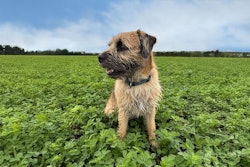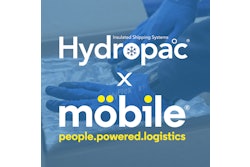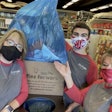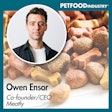
Paraphrasing George Bailey in the film “It’s a Wonderful Life,” clients’ money isn’t physically in their bank or credit union, Charley Cummings, Walden Mutual Bank CEO, said during a Pet Sustainability Coalition webinar. The money is invested and loaned out with environmental and social sustainability implications.
Pet food companies often overlook how their banking relationships channel capital into the broader economy, he said. Many of the largest banks, funnel substantial capital into fossil fuel intensive activities and other industries that may run counter to a company's ethics. In contrast, smaller banks may direct deposits into more mission-aligned lending: farms, food businesses and local economies.
“Small banks work with small businesses,” he said during the webinar Your Bank, Your Impact: Choosing a Financial Partner for Sustainability.
Where a company deposits operating cash or excess funds can indirectly support carbon-intensive sectors. Likewise, when a pet food company borrows for expansion or equipment, the choice of lender influences how well the business’s sustainability goals can align with its financing terms.
Cummings said that many bank business relationships are purely transactional: loan approved, funds deployed, relationship ends. In contrast, a bank that understands the pet food business, its supply chain, manufacturing footprint and sustainability metrics adds value beyond credit.
PolkaDog’s experience with small financial institutions
Founder of Boston-based PolkaDog, Deb Suchman, described how the company’s ethos of starting “from scratch” and embedding responsibility in its growth translated into choosing a small bank. PolkaDog, a manufacturer of dog treats, had a long history of bank relationships since launching in 2002. Suchman said they were 100% funded through bank loans, without outside equity. But she characterized prior relationships as primarily transactional: the bank provided capital, then the relationship faded into routine.
PolkaDog encountered Walden during a period of growth post‑COVID pet adoption surge. As the dog treat maker looked to install a new manufacturing oven, they consolidated some existing loans into a seven‑year fixed‑rate loan with Walden and obtained a larger working‑line of credit.
She further noted that beyond the loan and line of credit, PolkaDog became part of Walden’s “corp‑tour” community of depositors and board‑participation stewards. By sharing best practices and networking, she found that the banking experience went beyond financial and became relational and community‑oriented.
PolkaDog found that banking could become another part of their sustainability strategy. Pet food companies increasingly focus on ethical sourcing, energy‑efficient manufacturing, reducing packaging and supply‑chain transparency. By selecting their banking partner based on similar criteria, pet food companies can integrate environmental and social consciousness into a foundational, but often overlooked, part of their business.
 Tim Wall | DALL-E
Tim Wall | DALL-E














